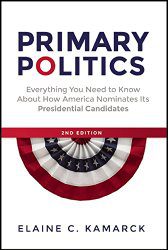Overwhelming Majority of Americans Believe that Both Parties Are Too Corrupt to Change Anything … Want a Revolution
We’ve previously noted that polls show that Americans are in a “pre-revolutionary” mood, that less than 1 in 5 Americans think that the government has the “consent of the governed”, that government corruption tops the list of Americans’ fears, and that 3 times as many Americans supported King George during the Revolutionary War than support our OWN Congress today.
You might assume that such statements are over-the-top … or that the results come from partisan pollsters.
